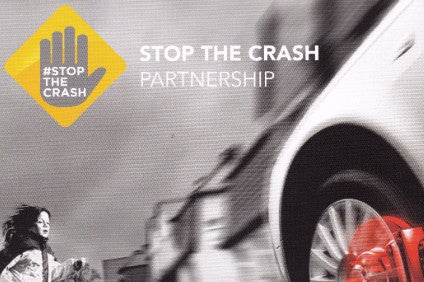
The second global high-level conference on road safety, hosted recently by the Brazilian government in the capital Brasília, had the advantage of sharing experiences of this complicated issue world-wide, taking cultural, general attitude about safety, and economic development differences between countries into account.
The final accord, called the Declaration of Brasília Project, is just too long and bureaucratic, however. The introduction alone includes 31 topics, followed by 30 more recommended action items, to "strengthen road safety management and improve legislation and enforcement". Besides repetitive content, some international organisations, eager to stand out in the crowd, tried hard to make suggestions difficult to implement outside so-called 'developed' countries. Some of these NGOs leaned towards excess, in fact.

Discover B2B Marketing That Performs
Combine business intelligence and editorial excellence to reach engaged professionals across 36 leading media platforms.
No one knows for sure the number of fatalities in global land vehicle accidents. Statistics are unreliable or even non-existent in poor or emerging market countries. The broadly accepted tally is 1.25m deaths a year, yet the globe has a population of 7bn sometime pedestrians, 1.2bn motor vehicles with at least four wheels and an even larger number of two wheelers – motorcycles and bicycles. Distances covered by individuals in a given year vary widely and must be taken into account. In the relatively developed countries with minimum economic global power, auto-related deaths registered with authorities total around 120,000/yearly (10% of the worldwide estimated total).
The Brazilian government, through Minister of Cities Gilberto Kassab, has finally announced it will comply "in a short time" (no date actually set) with protocol WP.29, the UN's World Forum for Harmonisation of Vehicle Regulations. Since 1952 there have been attempts, with varying success, to coordinate the varying efforts of different countries to improve vehicle safety, tailpipe emissions, energy efficiency and even make vehicles more resistant to theft. As an example, a clumsy proposal to install trackers in all vehicles in Brazil could be avoided under WP.29, and other failed initiatives could also be cited as a reason for aligning more with global standards and regulations.
One good outcome from the conference for Brazilians: minister Kassab said at the event the enforcement of electronic stability control (ESC) for all vehicles sold in Brazil and Mercosur was still in the "final discussion phase" – so an opportunity for Brazil's leadership to announce a major advancement in local vehicle safety at a global conference was lost. But, literally hours ago, about 30 days after the conference, ESC suddenly was made compulsory in Brazil, to be phased in with two stages: in 2020 for newly redesigned models (or major revisions) and by 2022 for all vehicles on sale.
Brazil had already taken part in the Decade of Action for Road Safety 2011-2030, another UN campaign. There was a 2% decline of number of deaths between 2012 and 2013 but the world challenge of cutting deaths in half by the 2030 final deadline looks unlikely to be achieved.
In his speech the minister also talked about "briefly starting" studies to implementing some sort of autonomous braking system.
Meanwhile, the Global NCAP organisation has launched, world-wide, its 'Stop the crash' initiative. Besides manadating ESC and ABS for motorcycles, it addresses three emergency braking levels: low speed collision, pedestrian collision (both typically in city traffic), and mitigating rear end collisions.
Each automatic brake application system is priced differently but if individual market laws required the lot, they would be less costly to add and even more so if there was simultaneous adoption by multiple countries.
Yet for countries with with average or low income this is seen as too ambitious a proposal, beyond the buying power of the majority of their consumers.
Another conference suggestion was tyre pressure monitoring – that is seen as affordable.






